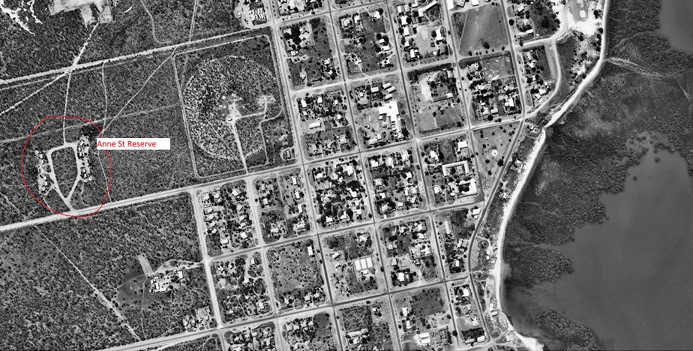The Anne Street Commemoration Oral History project is series of projects designed to tell the story of the Anne Street Aboriginal Reserve. It is the result of 2 years of research by Notre Dame University. About 30 ex residents were consulted with as part of the research and who now form the management committee, of this project. The committee have identified a number of cultural outcomes that they would like to see delivered. This project is the one they want to achieve first as it will feed into many of the other projects that they have planned.
The committee have employed Gwen Knox, who has over 30 years’ experience with working in collaboration with Indigenous people in performing arts events, through seed funding from Notre Dame University. She will project manage the arts based aims. Gwen has close personal connection with Anne Street.
ASCOH involves the collection of new oral histories to add to the ones already collected by Indigenous researcher from Notre Dame Uni, Anna Dwyer, who is also an ex-resident of the reserve, and turning them into songs to be performed as part or NAIDOC week 2019 at Goolarri Media GMME Bar. it will be a free event to ensure as many ex residents and family members are able to attend.
Many of the ex-residents of the reserve are established musicians and artists eg Mervyn Mulardi, Steven Baamba Albert and Franky Shoveller . We hope that many of the performer who lived there will join us in the concert
Oral historian Dr Elaine Rabbit will facilitate the collection of oral histories from people who lived on the reserve. Songwriter Lyn Hazelton and Mervyn Mulardi will translate the oral histories into songs with the people who own the stories. Individuals will have the opportunity to perform their own work at the concert as supported by the accompanying band or have band members perform them for them. Some of the stories will be given to music students of Broome to create and perform songs that they write on the subject.
While significant in the history of policy making re Aboriginal people in WA, and resulting town planning issues, the reserve has almost become forgotten except by people who once lived there. The reserve was designed to be a transitional accommodation for Aboriginal people who would go into state controlled housing. When the reserve was closed in 1982 state houses were built on the land and filled with families following the model of “salt and pepper communities”. ie. Alternating Indigenous families with non-Indigenous. As a result of this government experimentation, Anne Street is now known as the Bronx of Broome. There is high incidence of crime and family dysfunction.
ASCOHP fulfills some of the aims of the WA Department of Communities who currently manage the government housing in the area, “People and Home” as part of its Anne Street Urban Renewal project with the Shire of Broome. Dept of communities have identified this and further projects as being a key part of their redevelopment plans with potential for future funding. (See LOS)
ASCOHP is considered very important both historically and culturally by the WA Museum. Aspects of the project, specifically songs and artworks, are being considered as part of the Continuous Cultures (Working Title) exhibition in the New Museum for WA.
Supported by :
Goolarri Media, Department of Communities, West Australian Museum, Australia Council for the Arts, The Department of Local Government, Sport and Cultural Industries (DLGSC), WA Police, Notre Dame University.
Oral Histories collected by Dr Elaine Rabbit
Song writing facilitated by Mervyn Mulardy and Lyn Hazelton
Children’s visual art by children of Anne Street
Concert by the songwriters and support musicians during NAIDOC Week 2019
